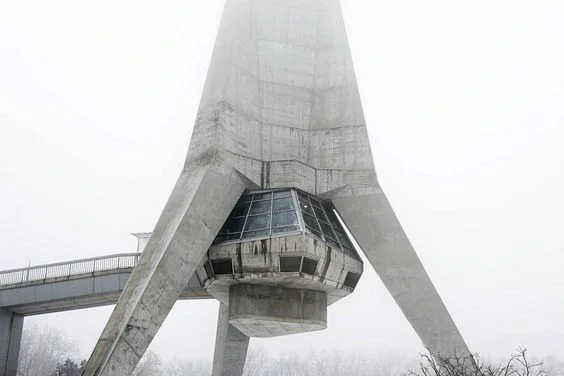Brutalist Architecture
Avala Tower, Belgrade, Serbia
Brutalism is an architectural style that I know very little about, but it is one that seems to pop up again and again as part of my own visual inspiration. I’m drawn to the stark, geometric and often functional aesthetics of the architectural style.
Brutalist architecture, as this style is also known, is an architectural style that focuses on mid-20th century structures that can find its roots in modernist architecture. You can easily spot brutalist architecture from the materials used – most often concrete and wood, but brick was used as well, the baring of the buildings functionality – such as public housing or institutionalist buildings , and the removal of “aesthetically pleasing” exterior motifs to conceal the true nature of the building itself.
I’ve also read that brutalism has its own architectural philosophy, one that closely associated with, and was sometimes confused with, a socialist Utopian ideology.
Mostly found in European communist countries from the 1960s to the 1980s, brutalist architecture can now be found all over the world.
The best known proto-brutalist architect was Le Corbusier, the Swiss architect, which is how I’m familiar with the movement. However, there are plenty of others.
Here are some of the most well-known examples of Brutalist architecture:
East elevation Unité d'habitation Marseille , Le Corbusier
Assembly building, Chandigarh, India , Le Corbusier
Chapelle Notre Dame du Haut, Ronchamp , Le Corbusier
Here’s a great documentary on brutalist architecture — Bunkers Brutalism and Bloodymindedness Concrete Poetry — which I believe is from the BBC. It’s worth a watch if you’ve got time.
Let me know if you’ve got any favorite architects from the Brutalist style!
E






